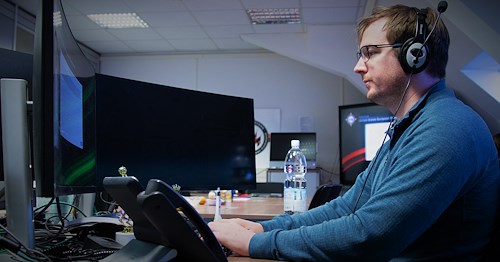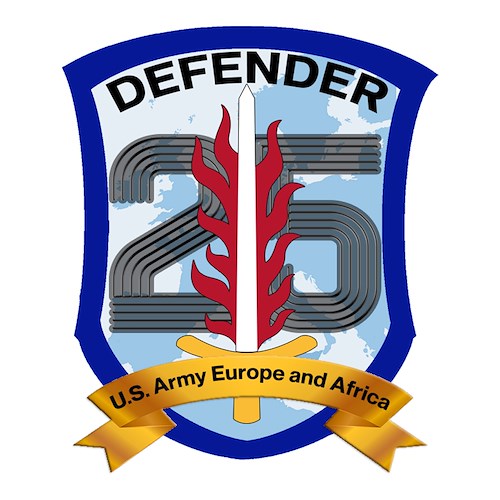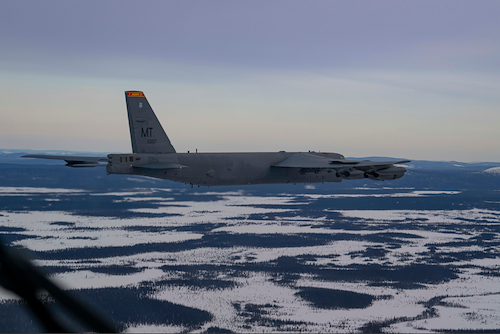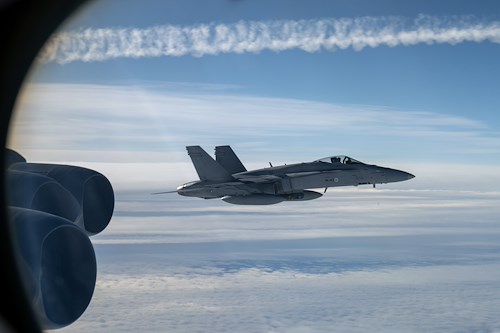Gallery contains 1 image
×
Photo by: U.S. European Command Public Affairs
U.S. European Command concluded its inaugural AI Battle Lab BRAVO 100 Hackathon on March 21 after hosting 23 top coders, developers, and data scientists to tackle warfighting challenges with data and artificial intelligence. Over four days, experts broke into five separate teams to identify, access, curate, and leverage data and AI to solve classified issue sets. Technical experts were joined by subject matter experts, industry partners, and other stakeholders to rapidly iterate on pressing challenges.
The BRAVO 100 Hackathon key goals included leveraging operational data from the European theater to advance how the Department of Defense fights, to collaborate across various classification levels with different tool sets and identify immediate mitigations and system steps required to affect change.
“USEUCOM’s inaugural Hackathon demonstrated that a whole-of-government approach can quickly produce the innovative solutions for tough problems in order to dominate the decision space,” said Maj. Gen. Peter Andrysiak, Jr., Chief of Staff, U.S. European Command. “This event showed when we get the right solutions-oriented, data driven, technical people in the room, that we can surmount nearly any challenge and give USEUCOM the edge over adversaries in an increasingly complex operational environment.”
The predefined problem set focused on identifying solutions that had the greatest impact to operations. Participants also identified and analyzed relationships between systems and developed overall assessment measurements for future operations.
“It’s clear that the energy, momentum, talent, and tech that these efforts bring together are the heartbeat of modernization and driving progress at the edge,” said Mr. David Wiltse, the U.S. European Command Chief Data and Artificial Intelligence Officer. “This was a fantastic cooperative effort with the Air Force Digital Transformation Office, the BRAVO Hackathon team, and the Office of Secretary of Defense Chief Data and Artificial Intelligence Office.”
Innovators also conducted initial exploratory data analysis to identify patterns in the data and compare pattern changes against real world occurrences as part of their effort to develop theories to solve problems. Concluding presentations to USEUCOM leadership included recommendations for how to get at the problem faster, filling another Hackathon goal of laying the framework for the follow-up event in the summer.
Next take steps include solution implementation based on the outcomes of the March Hackathon as well as preparation for the next Hackathon, which will widen the application criteria for potentially eligible participants.
Interested participants in the Hackathon scheduled June 3rd to June 7th in Stuttgart are encouraged to apply immediately as space and funding, determined on a case-by-case basis, are limited. Applications – available online here – will be accepted in the coming weeks. For more information, please reach out to saf.cn.bravo@us.af.mil.
-30-
About USEUCOM
U.S. European Command (USEUCOM) is responsible for U.S. military operations across Europe, portions of Asia and the Middle East, the Arctic and Atlantic Ocean. USEUCOM is comprised of more than 64,000 military and civilian personnel and works closely with NATO Allies and partners. The command is one of two U.S. forward-deployed geographic combatant commands headquartered in Stuttgart, Germany. For more information about USEUCOM, visit https://www.eucom.mil.








